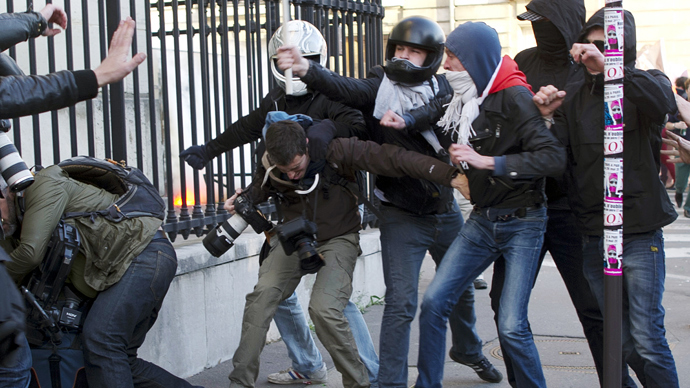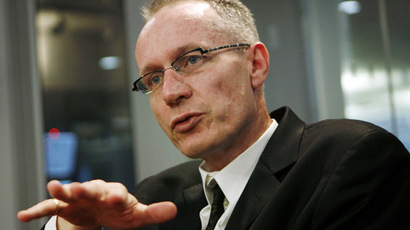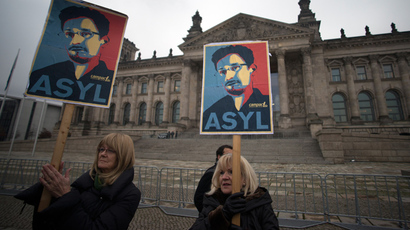Reporters Without Borders calls for attacks on journalists to be labeled war crimes

Reporters Without Borders, the international non-governmental organization that defends press freedoms, wants attacks on journalists to be considered war crimes by the International Criminal Court.
In an informal session of the UN Security Council on Friday, participants were warned of increasing attacks on journalists in hotspots around the globe.
According to the Committee to Protect Journalists, 1,017 journalists have been killed in the course of their work since 1992, 48 of them this year. Last year, according to Reporters Without Borders, 88 journalists were killed, a record since the organization started keeping records in 1995.
Equally disturbing about these deaths is that 90 percent have gone unpunished.
France, which now holds the rotating presidency of the Security Council, is particularly alarmed after the killing of two Radio France Internationale journalists last month in northern Mali.
The director general of France-based Reporters Without Borders (RWB), Christophe Deloire, warned that if attacks on journalists continued with impunity, it would give "encouragement" for more such acts of violence in the future.
To better protect journalists in war zones, RWB is requesting tougher measures to combat impunity.
“The resolution adopted by the General Assembly calls on member states to conduct ‘impartial, speedy and effective investigations’ into violence against journalists and to ‘bring the perpetrators of such crimes to justice’, so it is essential that the Security Council itself should address this issue,” Deloire said.
RWB believes the provisions outlined in the resolutions should include all “news providers” - not only professional journalists “but also bloggers and all non-professional journalists who gather and circulate news and information”.
The organization wants Article 8 of the International Criminal Court’s statute to be amended so that “deliberate attacks on journalists, media workers and associated personnel” are included among war crimes.
“Without paying systematic attention to all attacks against the press, without ending impunity, it is very difficult to ensure the safety of journalists,” said UN Special Rapporteur on the right to freedom of opinion and expression, Frank La Rue.

“Most cases of violence and threats against journalists are not investigated and those responsible are never identified, prosecuted or tried. The sense of impunity is a main cause for the recurrence of episodes of attacks against journalists around the world,” he said, calling on the 15-member Council to assert it authority on the matter.
Presently, the UN Educational, Scientific and Cultural Organization (UNESCO), is responsible for condemning acts of violence against the media, and demanding punishment for offenders. However, it lacks the force of law that the Security Council has.
La Rue noted that at least 84 journalists have been killed in Syria since hostilities between government forces loyal to President Bashar Assad and the rebel opposition broke out in March, 2011, as well as mentioning the two journalists killed in Mali.
“These are simply very recent extreme cases that give some idea of the risks journalists face to inform us every day,” he said. The official added that over the past two years he had dealt with complaints concerning attacks against 171 journalists in 40 different countries.
Mr. La Rue emphasized the role that international bodies can play in protecting journalists around the world.
“Only some extreme cases of violence raise some attention,” he said. “The majority remains totally invisible. Before a journalist is killed, threats and other forms of attacks take place without any attention from the national authorities or the international community.
“In times of war or peace, when the public right to know the truth of events is threatened, all human rights can be undermined,” he concluded.
Meanwhile, the dangers facing journalists include not only death and injury but imprisonment. It was announced at the meeting that 183 journalists around the world are now being detained.
The US-based Committee to Protect Journalists says it will release its annual count of imprisoned journalists on Wednesday.














